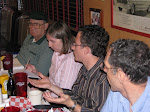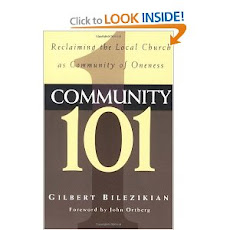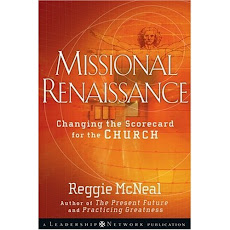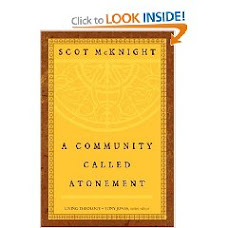 “Most people think, Great God will come from the skies,
“Most people think, Great God will come from the skies,
Take away everything, And make everybody feel high.
But if you know what life is worth, You will look for yours on earth:
And now you see the light, You stand up for your rights.”
Bob Marley & Peter Tosh – Get Up Stand Up
Another lunch…another post. This time, while the Wailers’ eschatology is not exactly my cup of Soursop, I am reminded of the lyrics to Get Up Stand Up when confronted by the following quotes from conversations I’ve had:
“The quicker the environment is ruined and WWIII comes, the sooner Jesus will return.”
“The Anti-Christ? We should vote him in! That means the Second Coming won’t be far behind.”
And, “We have to be careful not to make people too comfortable in this life, they’ll miss that they need Christ.”
I find the last paraphrased quote that came up in a recent lunch with another good friend especially ironic considering Jesus’ announced raison d’être in the 4th chapter of Luke’s Gospel:
“And he stood up to read. The scroll of the prophet Isaiah was handed to him. Unrolling it, he found the place where it is written: ‘The Spirit of the Lord is on me, because he has anointed me to preach good news to the poor. He has sent me to proclaim freedom for the prisoners and recovery of sight for the blind, to release the oppressed, to proclaim the year of the Lord's favor.’”
I also thought the quote suggesting that we hasten environmental degradation and war on behalf of the coming Kingdom of God ironic since it was stated by the social services director of a large homeless shelter in our community. I asked him, so why help the homeless? Wouldn’t it follow that the more homeless people we leave on the streets the sooner the Lord’s return? We reached an impasse.
I fully grasp that hardship often opens people up to spiritual realities, and to reach for things beyond our material lives, but at its worst, this approach reminds me too much of the abuses of the Church of England during the Irish Potato Famine. That was when Irish Catholics were only fed once they converted to Protestantism. More recently, I have sat in the back of missions with homeless Rastafarians as they muttered curses under their breath because they had to endure one more, long, ranting “sermon” before they could get a meal.
I wouldn’t be writing this post if these weren’t real conversations I’ve had with real Christians of late, or even if they were isolated ones. But they’re not. I grew up in the Late Great Planet Earth generation where Hal Lindsey’s book predicted the imminent return of Christ...say, oh, by the late 1980s. And that got a huge amount of traction and influenced evangelical thinking to this day. There is a real school of thought out there that if we hasten the collapse of western civilization, we’ll simultaneously hasten the rule of God. What if that’s wrong?
In their book, Adventures in Missing the Point, Tony Campolo and Brian McLaren weigh in on the “Second Coming.” Campolo writes regarding the “end times” that, “It has traditionally been perceived as a time when Christ would return, join the efforts of his people who were trying to bring in a just social order called the kingdom of God, and thereby bring those attempts to a glorious completion (Philippians 1:6).” This a very different approach than letting the world “go to hell in a hand basket” in order to somehow hasten our redemption. While he struggles to integrate them, McLaren writes, “When I read the Bible, I see a mingling of both streams of prophesy. One stream plants in us a dream of a just and peaceful society on earth (as in heaven), a hope within our history. The other stream emphasizes an eternal destiny, a hope beyond history as we know it.” These two streams are not mutually exclusive. They are parts of what make up the whole, and consistent, narrative. Or as Scot McKnight says in A Community Called Atonement, “…the atonement is designed for both an earthly realization and an eternal destination... [it] is not just something done to us and for us, it is something we participate in – in this world, in the here and now. It is not something done, but something that is being done and something we do as we join God in the missio Dei.”
Campolo continues, “Rather than the Dispensational idea of fighting battles in a war that ultimately goes so bad that Christians must be raptured out of it, the Second Coming promises that if we do not grow weary in well doing, in due season we shall reap (Galatians 6:9)…'Jerusalem' [in Revelation] is the kind of society that Jesus promised when he declared the Jubilee, the city in which [getting back to Luke 4] the poor would have good news, the oppressed would be set free, and the broken hearted would be healed. This ‘Jerusalem’ is the social system that the whole of history points toward, that is in fact the very goal of history - a kingdom that will be realized at Christ’s physical return.” In the meantime, to Camplolo, we are part of the mission, “…the history of the world is infused with the presence of God, who is guiding the world toward becoming the kind of world God willed for it when it was created.”
So, rather than waiting for “Great God to come from the skies,” maybe our focus should be on being the type of missional church that Rick Meigs (“The Blind Beggar”) describes at Friend Of Missional http://www.friendofmissional.org/ One that “…is evangelistic and faithfully proclaims the gospel through word and deed. Words alone are not sufficient; how the gospel is embodied in our community and service is as important as what we say.” So, let's not be afraid of making people "too comfortable." Maybe in comforting them, they will come to recognize the face of Christ. And maybe in doing so, "our redemtion draweth nigh."
What do you see when you look up?
Troddin down Babylon,
Steve














